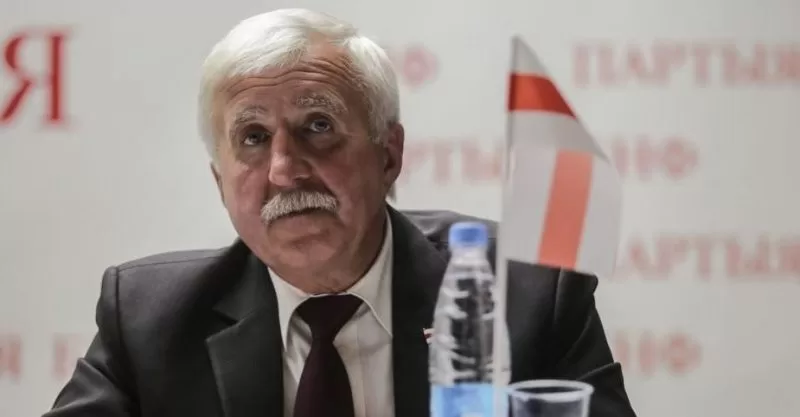In a rare piece of good news from Belarus, it has been revealed that the regime of Alyaksandr Lukashenka, who was re-elected as president for the sixth time in 2020 after a disputed election, has released at least 16 political prisoners on health grounds.
On 2 July, Lukashenka said, “Do not be surprised if, in a few days, very seriously ill people will be released, who did not manage to escape and are in prisons, who were breaking and destroying the country in 2020. But they are, indeed, seriously ill. Mostly with cancers.”
An amnesty was announced the following day to mark what the government called “the 80th anniversary of the liberation of Belarus from Nazi invaders”.
The Viasna Human Rights Center has reported that 16 people – 13 men and three women – have been released.
The names of most of the prisoners have not been revealed for safety reasons but they are known to include Ryhor Kastusiou.
Kastusiou, 67, has been chairman of the Belarusian Popular Front party since 2017 and was arrested on 12 April 2021, in Škloŭ, charged with “plotting against the government in order to seize state power”.
While in prison, Kastusiou has been diagnosed with cancer and critics say he has been denied proper medical treatment while behind bars.
According to Viasna, on 16 July 2023, Kastusiou told his wife in a phone call that not only had he been deprived of relatives’ visits, but also that his private records had been taken from him, including a draft of a book and mailing addresses. In November last year, he was placed in a punishment cell for six months.
The Belarusian state tries to portray such releases as a humanitarian gesture by Lukashenka to pardon critically ill political prisoners, but human rights activists say this is not true. Some of those released are believed to have served almost the full terms of their unjust politically motivated sentences.
Lukashenka has been known for his “trading skills” with Western countries for decades, with repressed people in the country not just targets for his authoritarianism but also as a currency for exchange and the lifting of sanctions.
While the news of the release has been welcomed by human rights defenders in the country and by the country’s government in exile, the fact remains there are still more than 1,400 political prisoners behind bars.





